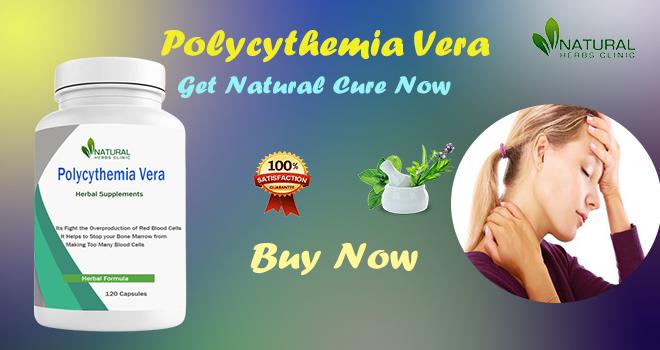
Polycythemia Vera (PV) is a rare and chronic blood disorder characterized by the overproduction of red blood cells in the bone marrow. This condition can lead to an increased risk of blood clots, heart attacks, and strokes. While conventional treatments such as phlebotomy and medications are commonly used to manage PV, there is growing interest in exploring natural approaches to complement standard care. In this article, we will explore various natural methods that may help control Polycythemia Vera and improve the overall well-being of patients.
Polycythemia Vera is a myeloproliferative neoplasm, which means it involves the abnormal growth of bone marrow cells. The exact cause of PV is not fully understood, but it is often associated with mutations in the JAK2 gene, leading to the uncontrolled production of red blood cells. The condition is usually diagnosed in older adults, and its symptoms may develop gradually over time.
Common symptoms of Polycythemia Vera include fatigue, headache, dizziness, itching, and a reddish or bluish skin tone. Diagnosis typically involves blood tests to check for elevated red blood cell counts and the presence of the JAK2 mutation. Other tests, such as bone marrow biopsy and imaging studies, may be conducted to confirm the diagnosis.
Phlebotomy, also known as venesection, is a standard treatment for PV aimed at reducing the excess red blood cells. During this procedure, a certain amount of blood is removed from the body regularly to maintain optimal blood viscosity and prevent complications.
Various medications, such as hydroxyurea and interferon, may be prescribed to control the production of red blood cells and manage symptoms associated with PV. These drugs can help lower the risk of blood clots and improve overall blood circulation.
In some cases, radiation therapy or chemotherapy may be recommended to reduce the size of the spleen, which can become enlarged in PV patients. These treatments are generally used when other methods do not provide sufficient relief.
A balanced and nutritious diet can play a significant role in Polycythemia Vera Natural Treatment. Patients are advised to consume foods rich in antioxidants, such as fruits, vegetables, and whole grains, which can help reduce inflammation and oxidative stress.
Certain herbal supplements, like ginkgo biloba and turmeric, have shown potential in improving blood circulation and reducing the risk of blood clots. However, it is essential to consult with a healthcare professional before using any herbal remedies to ensure they won't interfere with other medications or treatments.
Regular physical activity and lifestyle changes, such as quitting smoking and limiting alcohol intake, can positively impact on Natural Cure for Polycythemia Vera. Exercise helps improve blood flow, reduces stress, and enhances overall well-being.
Stress can exacerbate PV symptoms, so stress management techniques like meditation, deep breathing exercises, and mindfulness practices can be beneficial for patients. These practices help promote relaxation and reduce the body's stress response.
Acupuncture, an ancient Chinese healing practice, has gained popularity as a complementary therapy for various health conditions. Some studies suggest that acupuncture may help improve blood flow and alleviate PV-related symptoms.
Yoga and meditation can be beneficial in managing PV by reducing stress, promoting better sleep, and improving overall quality of life. Certain yoga postures may also aid in enhancing circulation.
Proper hydration is essential for maintaining blood viscosity and preventing clot formation. Patients with PV should ensure they drink an adequate amount of water daily.
Intermittent fasting has gained attention for its potential health benefits. While research specific to PV is limited, some studies suggest that controlled fasting might positively influence blood cell counts and improve overall health.
Blood-letting, an ancient medical practice, has been used for various conditions throughout history. In the context of PV, controlled blood-letting may help reduce the excess red blood cells.
Omega-3 fatty acids, found in fatty fish and certain nuts and seeds, have anti-inflammatory properties and may contribute to better cardiovascular health. Including these foods in the diet may be beneficial for PV patients.
Exposure to environmental toxins and pollutants can negatively affect blood health. Taking steps to minimize exposure, such as using natural cleaning products and avoiding smoking, can be advantageous for PV patients.
The mind-body connection is a crucial aspect of overall well-being. Engaging in activities that promote emotional and mental health, such as counseling or support groups, can complement the management of PV.
Various complementary therapies, like aromatherapy and massage, may offer relaxation and symptom relief for PV patients. These therapies can be used in conjunction with conventional treatments.
In conclusion, Polycythemia Vera is a complex condition that requires comprehensive Polycythemia Vera Alternative Treatments. While conventional treatments are essential, natural approaches can play a supportive role in improving the overall health and well-being of individuals with PV. It is crucial for patients to work closely with their healthcare providers to create a personalized treatment plan that includes both standard medical care and natural interventions. By embracing a holistic approach, individuals with PV can enhance their quality of life and potentially reduce the risk of complications.